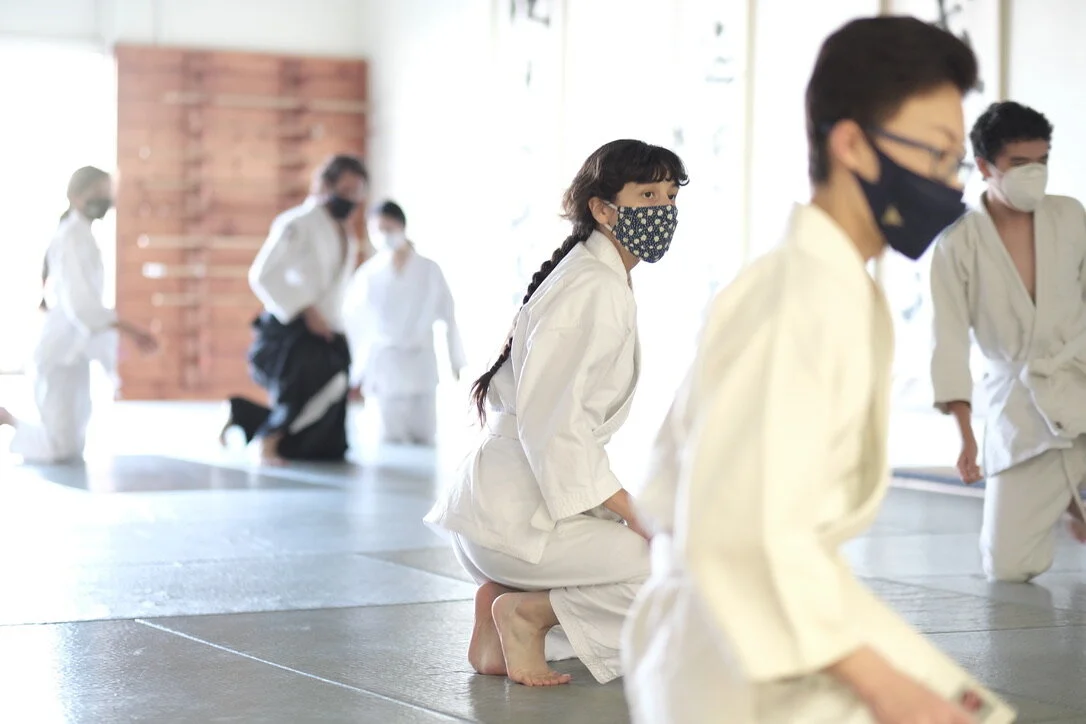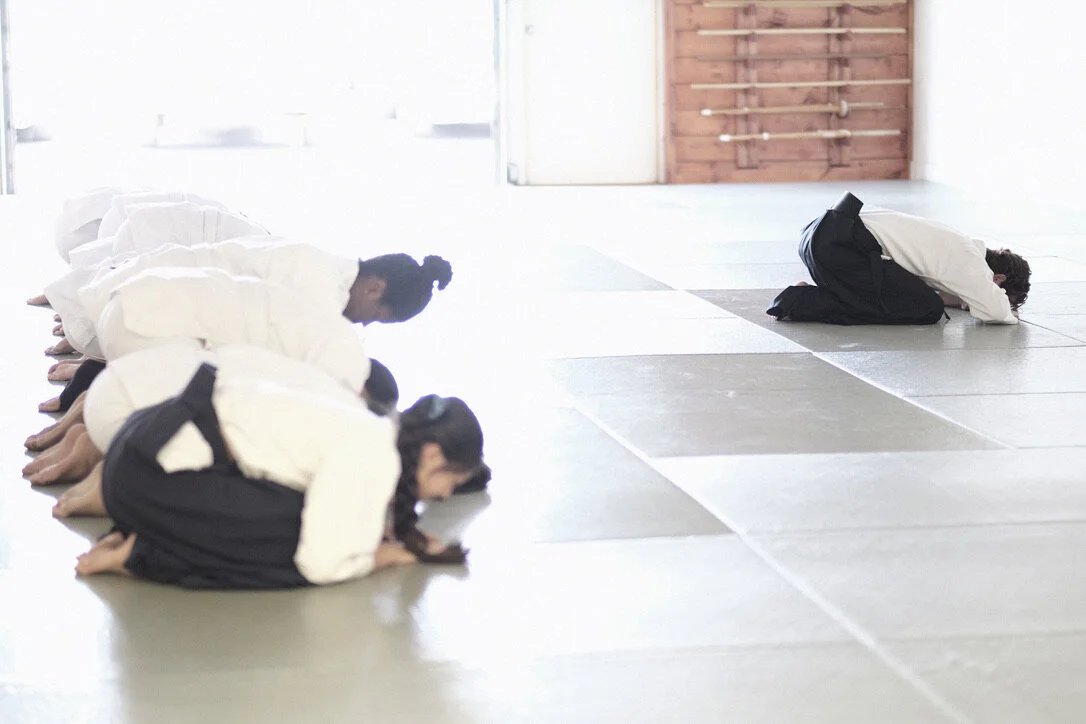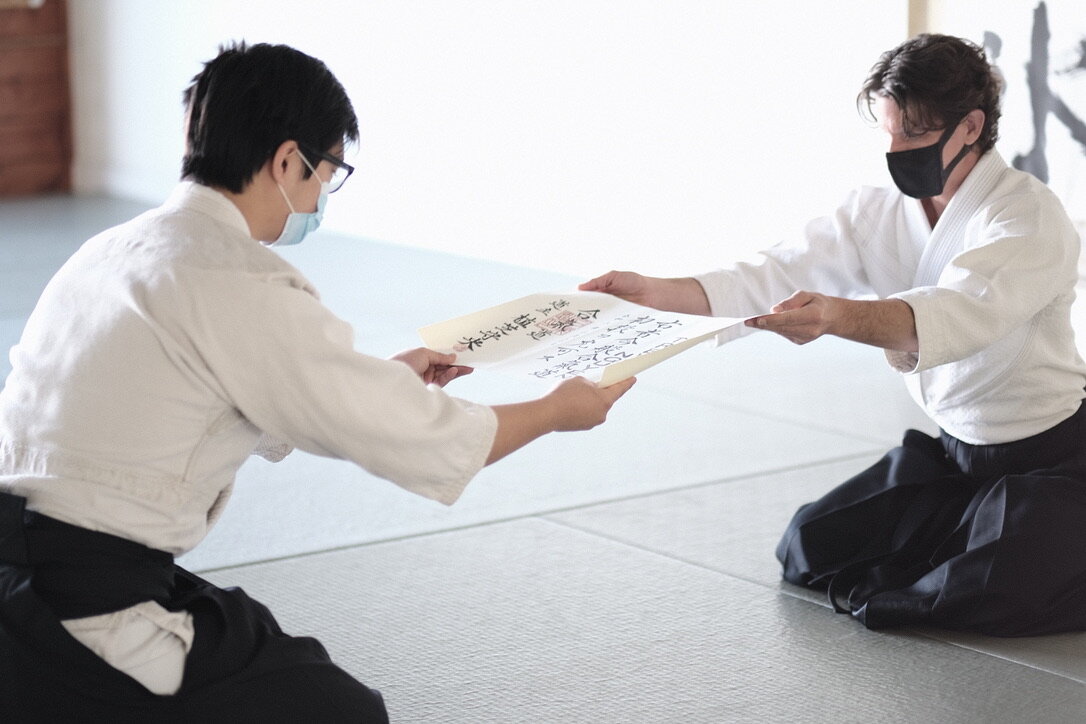How Dojo Etiquette is a Training Ground for Leadership and Adaptability
Those new to martial arts practice can find some social rules to be confusing, even troubling. A bow, for example, is regarded in many cultures as a gesture of submission. This can be problematic for those of us who are heirs to Judeo-Christian tradition (to use a single example of any number of religions that find it so). In the Bible’s Ephesians 3:14, it says, “They who kneel before God can stand before anyone.” However, philosophers, such as Immanuel Kant, reject bowing, even to God: “Kneeling down or groveling on the ground, even to express your reverence for heavenly things, is contrary to human dignity.” Other people, particularly those of a deconstructionist perspective, think that there is no issue; it’s just a physical movement, and the only meaning it has is the one we put on it.
Martial arts are a laboratory for real life, not ‘real life’ in themselves. Through martial arts practice, we learn how we respond to force, how to deal with less than perfect training partners, and how to react to things that we are taught, that don’t seem to make sense. We are expected to bow to each other, to our teacher(s) and to such things as a photograph of a teacher, a scroll with some words or the name of a deity, even though we don’t do that in real life. (And regarding this last phrase, there is a Biblical commandment against bowing to idols).
The word for ‘etiquette’ in Japanese is礼儀 (reigi), which means “the obligation to bow.” This encapsulates a very important Japanese cultural trait, where a sense of obligation is of supreme importance. What can this ‘obligation to bow’ teach us about leadership and adaptability? In Japanese culture, bowing and other aspects of reigi are actions that enables people to determine social hierarchy. In addition, they give one a means of assessing the other person’s sense of self (e.g., Do they respect themselves? Do they respect themselves too much or too little? Are they shy, arrogant, impatient, disrespectful, dignified, etc.?)
So, what can a student learn from following social rules (reigi) within a dojo setting?
1) In learning how to bow—how much to incline the body when bowing to someone ascendant, equal or lower to you in the social hierarchy—you decide how you want to express yourself through your bow. Whatever you choose has consequences in regards to your relationship with that person.
2) Once you know what different types of bows mean, you can understand another person’s personality. “Wait,” you might object, “but we don’t bow in my culture.” However, you are not simply training to assess how a person bows; you are training to assess people, whatever they are doing. If you have trained yourself to assess a bow, you can also evaluate and understand their stance, the way they sit, talk, yawn—any activity at all.
3) You also learn to assess yourself—how you react when you are expected to conform to social rules that may be in conflict with your own values, be they cultural or personal. This helps you understand, to a deeper degree what things are worth fighting for, and what things are worth accepting.
4) You will almost surely live and work with people from different cultures, or even live in a different country. People can have expectations or make demands upon you.
What if I am eating a lunch I brought from home, and someone objects, saying my eating that food offends them. Almost surely, I will continue to eat my meal. However, if I am in another country, I will most likely not insist on eating something that is offensive in their culture. [In America, I will eat a roast beef sandwich in the presence of a Hindu, and a pork chop in the presence of a Muslim. I would not do so in India and Pakistan, respectively].
On the other hand, what if they offer you something that is offensive? I will not eat whale meat—it is against my values, unless my survival is at stake. When I was offered whale meat in Japan, I politely refused. People would get offended, but I would politely continue to refuse.
5) What if bowing within a dojo is something that is so against your values that you cannot do it. Some teachers will make an accommodation; others will not. Both are right—because that is the culture of their dojo. One of the most important lessons in martial arts is to accept when you cannot change a situation—the lesson is learned in the decision that you then make, and how that choice affects you.
6) Finally, your own role as a leader is highlighted here. Consider that people may object to your leadership style, the rules of your organization, the goals of your project, the very fact of your existence. Just as you have had to make your own decisions regarding reigi within the dojo you train, you will have to make decisions on what to expect or require from people when you are in a leadership role.
1. Immanuel Kant, Metaphysical Principles of Virtue, in J. Ellington (trans.), Ethical Philosophy (Indianapolis, IN: Hackett),1994.
2. Some folks have read my writing for young adults, and have suggested that stay away from words that are not in common usage, and therefore, are above your heads. I think this is disrespectful of your intelligence. If I’ve written a word that you don’t understand, you easily can look it up, and learn so much more than if I used ‘simple’ words. If I used the word, ‘modern,’ for example, it would not mean the same thing as deconstructionist, which is a very important intellectual philosophy that is affecting all of our lives, even when we aren’t aware of it. For example, deconstructionist thinking has permeated academic disciplines.



